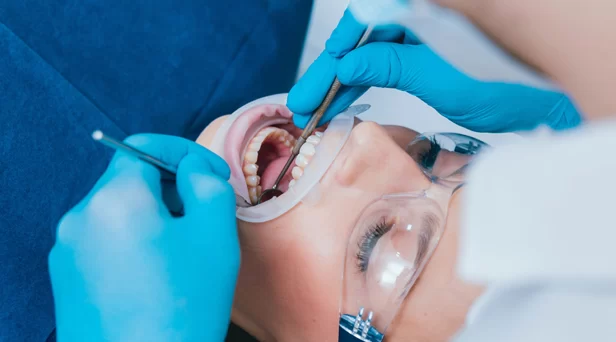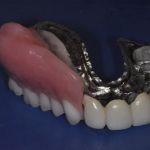
Comprehensive Post-Operative Care for Oral Surgery Patients with Dental Bridges
- Pain Management After Oral Surgery
- Maintaining Oral Hygiene with Dental Bridges
- Dietary Guidelines for Faster Recovery
- Common Post-Surgery Complications and Solutions
- Long-Term Care for Oral Health and Bridges
1. Pain Management After Oral Surgery
Managing pain is one of the biggest concerns after oral surgery, especially for patients with dental bridges. Your dentist will likely prescribe pain relievers, but over-the-counter medications like ibuprofen can also help reduce swelling and discomfort. Applying a cold compress to the affected area for 15-minute intervals during the first 24 hours can also minimize swelling.
When to Seek Professional Help
If pain persists beyond a few days or worsens, it could indicate an infection or other complications. Contact your dentist immediately if you experience severe swelling, bleeding, or fever.
2. Maintaining Oral Hygiene with Dental Bridges
Oral hygiene is crucial for preventing infections after surgery. Patients with dental bridges should follow these steps:
Gentle Brushing and Rinsing
Use a soft-bristled toothbrush and avoid direct pressure on the surgical site. Rinse gently with a saltwater solution or a prescribed mouthwash to keep the area clean.
Avoiding Infection
Since food particles can get trapped under dental bridges, consider using a water flosser or special interdental brushes. This prevents bacterial buildup and ensures a smooth recovery.
3. Dietary Guidelines for Faster Recovery
What you eat after oral surgery significantly affects healing. Stick to soft foods like yogurt, mashed potatoes, and smoothies for the first few days.
Foods to Avoid
Avoid hot, spicy, or hard foods that could irritate the surgical site. Refrain from drinking alcohol or smoking, as they can delay healing.
4. Common Post-Surgery Complications and Solutions
Understanding potential complications can help you take quick action if needed. Some common issues include:
Excessive Bleeding
Mild bleeding is normal, but if it persists beyond 24 hours, apply gentle pressure with gauze and contact your dentist if it doesn’t improve.
Infection Symptoms
Signs of infection include persistent pain, swelling, pus, and fever. Maintaining good oral hygiene and following your dentist’s aftercare instructions can prevent infections.
5. Long-Term Care for Oral Health and Bridges
Once the initial healing phase is over, maintaining long-term oral health is key. Regular dental visits, professional cleanings, and a proper oral hygiene routine will ensure your dental bridges last for years.
Strengthening Your Oral Health
Consider using fluoride treatments and non-abrasive toothpaste to protect your natural teeth and bridgework. Staying hydrated and following a balanced diet also contribute to a healthier mouth.
By following these post-operative care guidelines, you can ensure a smooth recovery and maintain your dental health effectively. If you're looking for high-quality dental care products to support your recovery, consult with your dentist for the best recommendations.







 Nashville Cosmetic and Implant Dentistry4.0 (208 review)
Nashville Cosmetic and Implant Dentistry4.0 (208 review) Lifetime Family Dental PLLC0.0 (0 review)
Lifetime Family Dental PLLC0.0 (0 review) Angela Gum D.D.S.4.0 (86 review)
Angela Gum D.D.S.4.0 (86 review) Total Dentistry-Streamwood4.0 (26 review)
Total Dentistry-Streamwood4.0 (26 review) Kurtis R. Finley DDS (Palo Alto Endodontic Group)5.0 (5 review)
Kurtis R. Finley DDS (Palo Alto Endodontic Group)5.0 (5 review) Dentist of Bixby Knolls4.0 (354 review)
Dentist of Bixby Knolls4.0 (354 review) The Importance of Oral Health Education During Pregnancy for a Healthy Pregnancy
The Importance of Oral Health Education During Pregnancy for a Healthy Pregnancy Best Tips for Brushing Your Teeth Properly for Healthy Gums: Essential Techniques for Oral Health
Best Tips for Brushing Your Teeth Properly for Healthy Gums: Essential Techniques for Oral Health Why Skipping Dental Checkups Can Lead to Bigger Oral Health Problems
Why Skipping Dental Checkups Can Lead to Bigger Oral Health Problems Advantages of Porcelain Dental Restorations
Advantages of Porcelain Dental Restorations How Can Diabetes Cause Tooth and Gum Problems? Preventing and Managing Oral Health Issues
How Can Diabetes Cause Tooth and Gum Problems? Preventing and Managing Oral Health Issues Healthy Habits for Promoting Good Oral Health and Hygiene: Tips for a Healthy Smile
Healthy Habits for Promoting Good Oral Health and Hygiene: Tips for a Healthy Smile